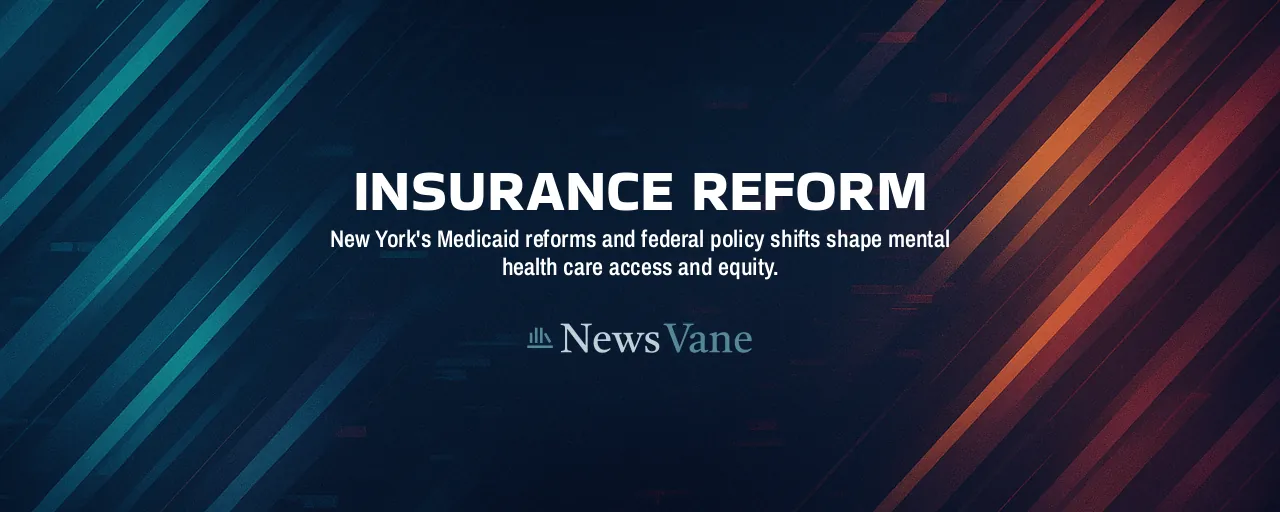A State Takes Charge
For many New Yorkers, getting mental health or addiction treatment feels like navigating a labyrinth of insurance rules. On June 10, 2025, Governor Kathy Hochul shared news that offers hope. Every Medicaid managed care plan in the state has made strides in following laws that ensure fair access to behavioral health services. This progress stands out as federal officials signal plans to ease similar protections, highlighting a divide in how leaders approach healthcare access.
This development matters for people who rely on Medicaid. It translates to fewer rejected claims for therapy or substance use treatment and quicker connections to providers. The state's focus reflects a belief that mental health care is as vital as physical health care. For those new to policy discussions, this development has real-world impact. A parent seeking counseling for a child or an adult needing addiction support faces fewer barriers.
Two insurers, Capital District Physicians' Health Plan and Excellus BlueCross BlueShield, met all 19 nonquantitative treatment limitations. These rules stop insurers from using tactics like excessive prior authorizations to limit behavioral health care. While this achievement is notable, challenges persist. Some plans still pay behavioral health providers less than those offering medical services, creating gaps in care quality.
A Federal Step Back
Nationally, the picture is less certain. The Trump administration recently indicated it might halt enforcement of mental health parity regulations, part of the 2008 Mental Health Parity and Addiction Equity Act. These laws require insurers to treat mental health and substance use care equally to physical health services. Without federal pressure, patients could encounter stricter limits, such as fewer in-network therapists or higher costs for treatment.
Some policymakers and industry groups argue that federal regulations increase insurance premiums and hinder innovation. Proposals like those in the Heritage Foundation's Project 2025 push for state-led oversight and market-based solutions to cut costs. Others, including patient advocates, warn that loosening federal rules could widen inequities, especially in states with fewer resources to enforce parity on their own.
New York has responded by strengthening its oversight. The state's Office of Mental Health examined six key nonquantitative treatment limitations and confirmed compliance across all Medicaid plans. Yet, deeper reviews uncovered issues, like unequal payment rates for behavioral health services. From 2019 to 2021, the state issued 95 citations to 15 plans, imposing fines exceeding $1 million to correct violations.
Turning Fines Into Solutions
The state's enforcement efforts go beyond penalties. Fines have funded the Community Health Access to Addiction and Mental Healthcare Project, known as CHAMP. This program assists New Yorkers in resolving insurance disputes and securing treatment. For someone denied coverage for a therapy session, CHAMP provides a lifeline, helping them access care without endless red tape.
New York has a track record of challenging insurers. A 2018 review identified $39 million in wrongful claim denials from 2017 to 2018, leading to swift state action. In 2021, a collaboration with federal regulators resulted in UnitedHealthcare paying over $18 million for parity violations. While these steps show resolve, some advocates argue for tougher penalties to deter future noncompliance.
Access to mental health care remains uneven across the country. A 2024 federal audit by the Office of Inspector General revealed that none of eight sampled states fully met parity standards for Medicaid managed care. In New York City, a 2025 survey found 14 percent of adults reported unmet mental health needs, citing costs and stigma. These issues hit low-income and immigrant communities hardest, underscoring the limits of state action without federal backing.
What's Next for New Yorkers
Starting in July 2025, New York will enforce new rules requiring insurers to schedule initial behavioral health appointments within 10 business days. If plans can't deliver, they must cover out-of-network care at no extra cost to patients. The state also requires commercial insurers to pay for outpatient mental health and substance use services at least at Medicaid rates, encouraging providers to offer these services.
These efforts occur against a backdrop of federal uncertainty. Proposals to cut Medicaid funding could strain state budgets, limiting New York's ability to sustain robust oversight. Advocates for health equity emphasize that insurance reforms alone aren't enough. Factors like housing or transportation barriers require attention to ensure care reaches those who need it most.
For New Yorkers, the state's actions offer a clearer path to mental health and addiction treatment. Yet, the broader challenge involves balancing insurer accountability with affordable coverage. New York's approach demonstrates what a state can achieve when it prioritizes behavioral health. As national policies shift, the state's experience provides a model for ensuring care remains within reach.
